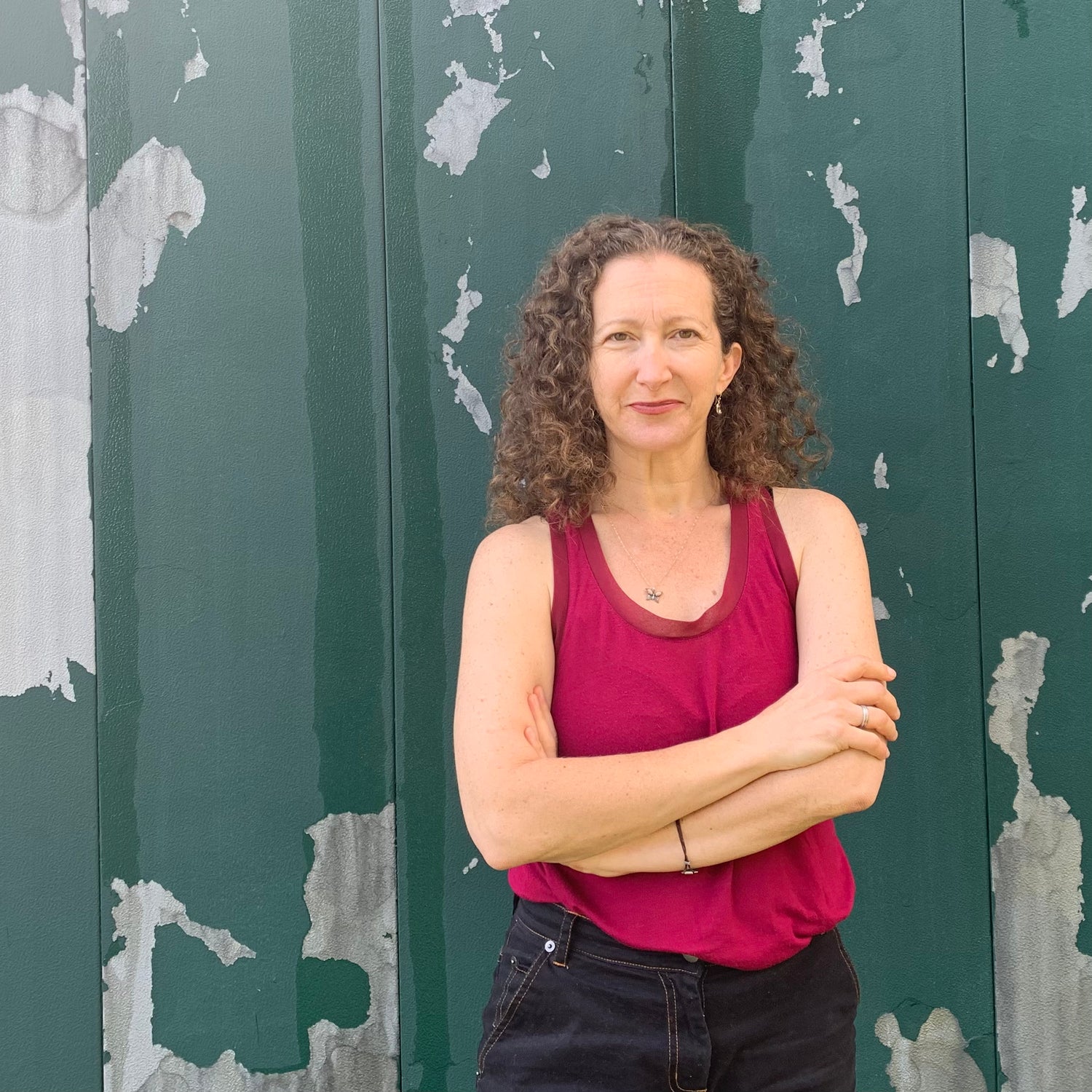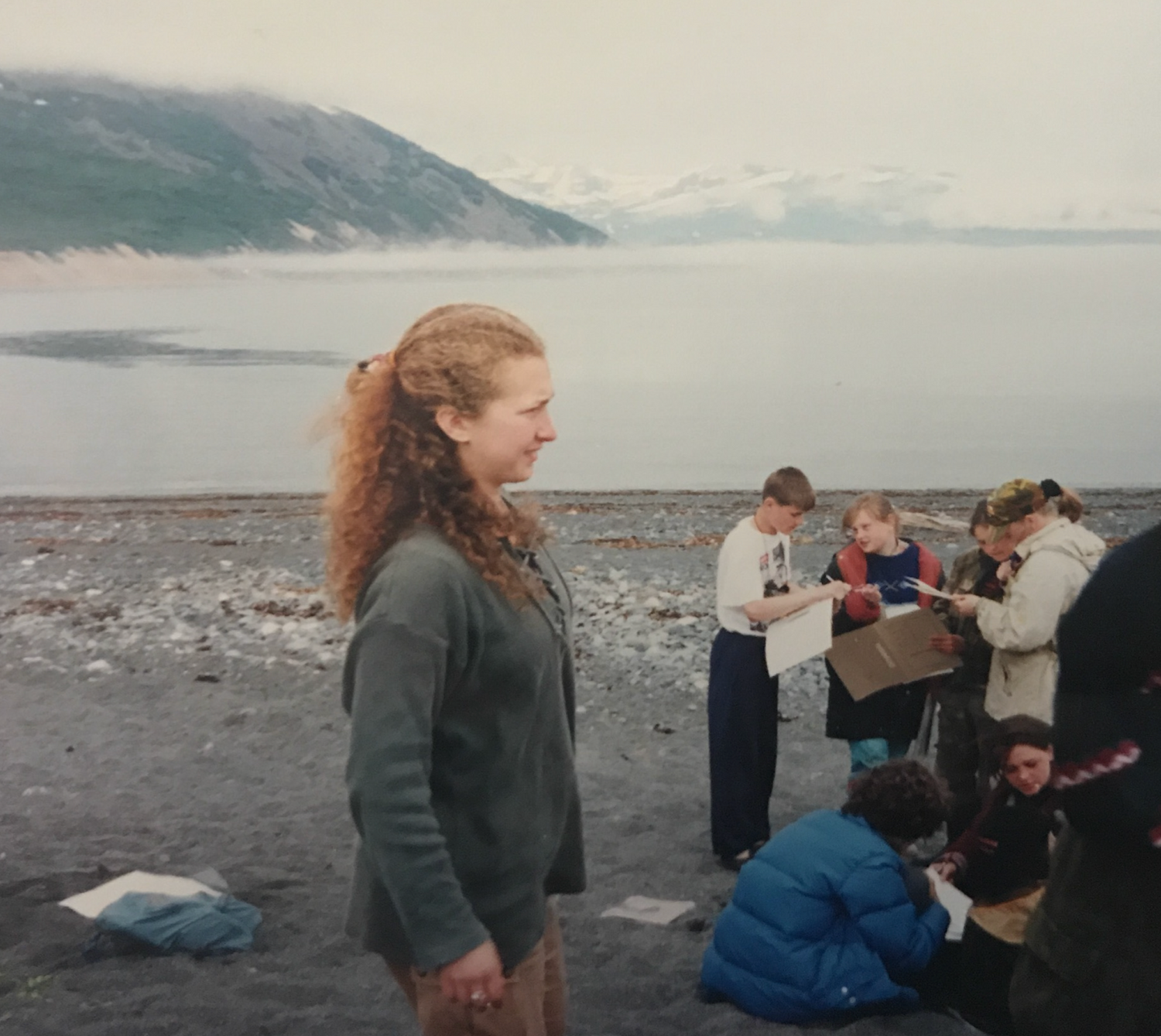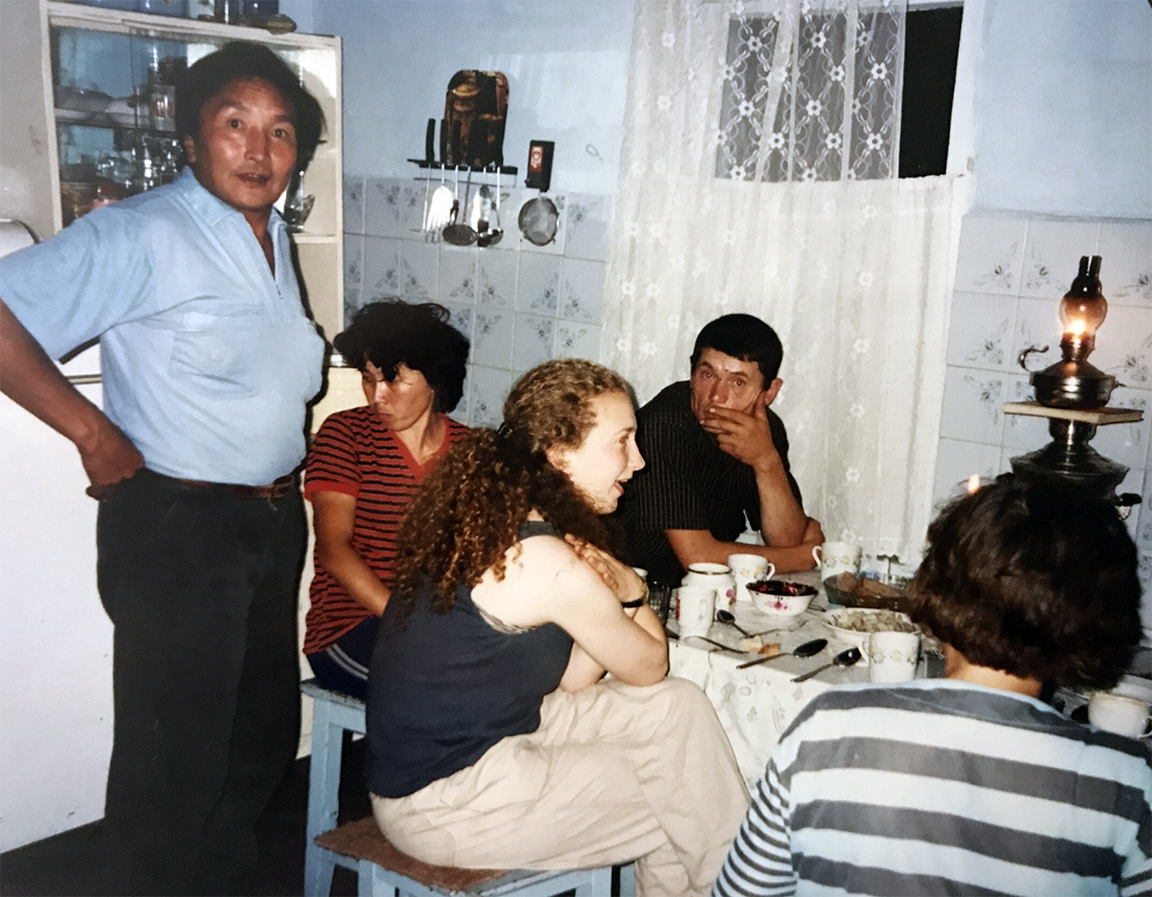
Hi! I'm Jen Daniels.
I am a facilitator, creative problem solver, designer, dancer and all-around curious human.
I want to make it as easy as possible for groups to do the hard work of dreaming, planning, visioning and organizing together.
I create spaces that turn strangers into colleagues, partners and allies.
My facilitation has been built upon a lifelong practice in conflict transformation and dialogue facilitation.
Because we know that human beings are naturally diverse.
Curiosity is the engine of learning.
And, human life is inherently creative.
But, it is that diversity that makes human conflict inevitable in our society.
And, solving for it is where we can begin work together.
This is our point of departure.
Talking with strangers started on a peninsula in the middle of the Sea of Okhotsk

Weaving communities in Siberia
Weaving Communities (Spleteniye v S'Obshestvo) was a curriculum designed to approach outdoor education and leadership using the combination of systems thinking and community development to teach concepts about human and ecological communities.
some of our most personal conversations start at our most familiar places -- our kitchen tables.

So, where better to start building relationships or strengthening our networks. In my twenties I spent six years living in Siberia working with community advocates. My role was to quietly ensure full participation of those at the table who were the 'citizen experts', interject questions, summarize back to the group what was being shared and continually move the dialogue toward the groups vision and values and navigate conflict generatively and with accountability. This was the same challenge when I had the privilege of working with communities in the Four Corners region of the U.S. and New England.
These interactions made me acutely aware of what it meant to truly listen and build meaningful collective connections. It always led back to a genuine curiosity about people and a deep commitment to holding space -- meaning holding the dynamic energy and intentions within a space, an organization or movement.*
*for more on holding space refer to the work of adrienne maree brown.
Jen's work is influenced by:
Conflict Transformation & Peacebuilding
The concept of conflict transformation was developed by John Paul Lederach and others working in the peace building movement. The premise of the framework diverges from the more mainstream concepts of conflict resolution and mediation in that conflict is viewed as an opportunity, rather than a singular negative event. The approach goes beyond negotiating solutions and focuses on building something new.
This was also Ms. Daniels' window into the global world, into other cultures, into other ways of being, but more importantly, led her to ways of connecting across culture, ways of understanding each other in deep respect, and methods of moving us through the misunderstandings that can create disconnection, mistrust, and eventually conflict.
Jen trained and worked over many decades with peacebuilders, nonviolent activists and social movement organizers at the School of International Training and Training for Change with teachers such as Dr. Paula Greene, Dr. Louise Diamond, Dr. Mohammed Abu-Nimer, George Lakey, Judith Jones, Erika Thorne. In Russia, Jen worked with Golubka (Dove).
Facilitated Dialogues
Ms. Daniels' believes facilitation involves holding space as a a profound act of listening and scanning for language and body cues with an awareness of how the group evolves and shifts in their perspectives. Jen believes in the power of collective intelligence -- "the capacity of human communities to evolve towards a higher order complexity, harmony, and action."
Jen has spent a decade facilitating workshops with students from war-torn regions, Indigenous advocates committed to healing their communities, religious leaders weaving fractured communities back together, and community members relying on dialogue circles to find mutual understanding.
She is trained in and has employed a variety of modalities such as multi-stakeholder dialogues, inter-group dialogue, collaborative inquiry, Study Circles, the World Cafe and other participatory processes. And, with George Lakey and his crew at Training For Change who uses the direct education approach which 'challenges traditional education by confronting the beliefs, conflicts, and oppression that keep leaders and groups from being their most powerful'.
Grassroots Organizing / Social Movements
Inspired and mentored by giants in the field of social movements and emerging artists leading the way to social change and a much more inclusive storytelling, Ms. Daniels' has maintained a proximity to social movement spaces throughout her life that has spanned multiple cultures and countries.
Throughout her life she has always been surrounded by a counsel of female and femme elders, ancestors and co-conspirators that hold her accountability, bring her joy, love and challenge her to continue to question and challenge her perspectives.
Landscape Architecture & Spatial Design
Ms. Daniels' was inspired to study landscape architecture after reading a description of the field as the design of humans in their spaces. She had just spent over a decade in a dialogic, language-dependent modality, could it be achieved through spatial design as well? And, if so, how could these spaces impact our ability to work through conflict and build connection?
How people feel in a space and how they relate to one another can mean the difference between warm and open conversation to stilted and reserved flow.
Jen spent her years obtaining her Masters at the University of Pennsylvania's School of Design studying under James Corner, Anita Berrizbeitia, Cindy Saunders and listening to the wisdom of mentors such as Diane Jones Allen and Walter Hood and Cornelia Oberlander.
Dance & Choreography
Jen is a dancer.
She began studying classical ballet from the age of seven and grew up in the theatre performing in a regional ballet company. Throughout her nearly half-century in movement spaces in addition to ballet, she has studied a vast array of genres from Jazz, Hip-Hop, Improvisational, Contemporary, Modern, Bachata, Salsa, Kizomba, and other African styles. She has also worked with numerous choreographers.
The art of dance offers up a unique perspective about the quality of movement through space, and the potential to choreograph experience in a sensory and experiential way, interwoven with narrative and expression.
What is found in dance shows up in Jen's facilitation style.
Dance requires discipline but is also balanced with the immediacy of joyful creativity.
Movement informs us of leadership; the physical interplay of leading and following.
Being a dancer requires being attuned to ones' body, sensing others around you and learning how to read other bodies in the room, much like the facilitator must tune into the frequencies of the group dynamics.
Because, a group is emergent and physical.
Ways to work with Jen:
Opportunities for deeper connection and learning, problem solving and pragmatic synthesis for leaders in the public, private, institutional, social movement and arts spaces. Jen engages with leaders to strategize, design and facilitate high stakes, multi-scale gatherings and challenging conversations.
-
Book a workshop
Customized workshops based on the needs of your group, gathering, organization, convening.
-
Inquire about advisory / facilitation
High-stakes meetings and dialogues for public, political and social movement spaces.
-
Request a design consultation
Effective spatial design and flow ensures our purpose aligns with the purpose of our gatherings.